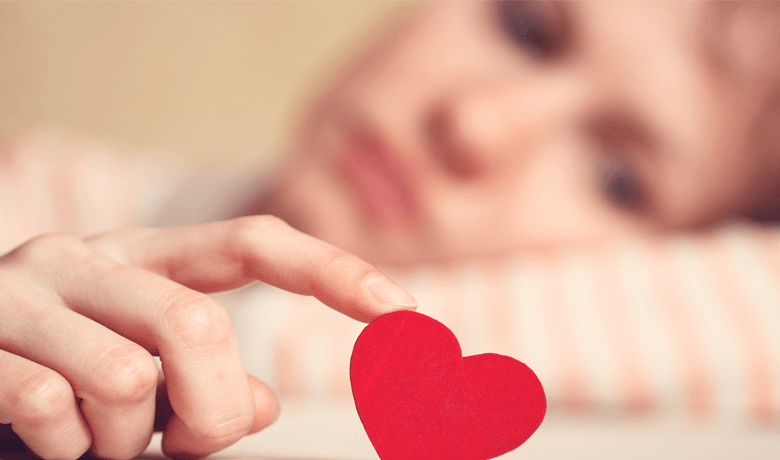What is love addiction?

What is love addiction?
Love addiction is a condition in which a person develops an unhealthy and compulsive attachment to a romantic partner.
Falling in love is a beautiful emotion that everyone deserves to experience. Having someone to love and be loved is something almost everyone desires. But being in love can manifest itself in unhealthy ways. As a result, some people behave in strange and irrational ways that can be harmful to themselves and their loved ones.
People with love addictions also find it difficult to form and maintain healthy relationships. Although commonly seen in romantic relationships, love addiction can occur in other forms of relationships as well. This can happen in relationships with friends, children, parents, or other people.
People with this type of addiction often have unrealistic standards and expectations for love. If it is not met, it will only worsen the condition.
It is often argued that love addiction should not be classified as a mental illness. However, some believe that people with this disease actually experience debilitating symptoms.
They often have an unhealthy attachment to their partner and try to control them. As with other addictions, people with love addictions may exhibit behaviors and urges that they cannot control. However, with proper treatment and care, you can relearn unhealthy behaviors and attitudes toward love and learn how to form healthy, loving connections.
Symptoms of love addiction
Love addiction looks a little different depending on the person. The most common symptom of love addiction is an unhealthy attachment to the other person, and the person engages in obsessive behavior, such as frequent phone calls or stalking.
Love addiction often manifests itself in the following ways:
- Feeling lost and defeated when your partner is not around
- Feeling overly dependent on your partner
- Putting your relationship with your partner above all other personal relationships in your life, sometimes completely ignoring other personal relationships with family and friends.
- After his romantic advances are rejected, he becomes depressed and becomes attached to his lover.
- They always seek romantic relationships, even with people they think are not good for them.
- I always feel depressed when I don't have a romantic partner or am not in a relationship.
- Difficulty leaving unhealthy or toxic relationships.
- Making bad decisions based on feelings you have for your partner or lover (e.g. quitting your job, cutting ties with your family).
- You think about your partner or lover so much that it interferes with your daily life.
There are many other symptoms of love addiction that I may not have mentioned above. This is because symptoms vary widely and each person expresses emotions uniquely. The way a person chooses to express their emotions is reflected in their symptoms.
The symptoms of love addiction also vary in severity. Some signs may seem harmless, such as frequent phone calls, but others are more harmful, such as stalking a romantic partner or restricting who you interact with.
How to recognize love addiction
Love addiction is not a mental illness recognized by the Diagnostic Manual of Mental Disorders.
There has been some debate in the medical and community circles as to whether this condition should be classified as an actual mental illness. This makes it much more difficult to identify than other established mental illnesses.
If you or someone you know has a love addiction, talk to your doctor about it. They may refer you to a psychotherapist who can conduct a series of tests and ask you a series of questions to determine whether love addiction is a valid way to conceptualize your difficulties. It has the highest gender.
Causes of love addiction
More research is needed to understand love addiction and easily identify its causes and triggers. Existing research points out that various factors, such as trauma and genetics, can trigger the development of love addiction.
Research has also shown that there is a connection between the euphoria you feel when you're in love and the pleasures that people addicted to substances like cocaine and alcohol may have.
Researchers found similarities in the way people in love and those addicted to substances behave. Both groups can experience emotional dependence, frustration, low mood, obsessions, compulsions, and loss of self-control. When you're in love, your brain releases feel-good chemical messengers such as dopamine. Similar patterns occur in drug abuse and addiction.
Other well-known causes of love addiction include:
- Dealing with issues abandoned in the past
- low self-esteem
- Have experienced emotional or sexual abuse in the past.
- Have you ever experienced a traumatic relationship?
- Overcoming childhood trauma
- Treatment for love addiction
Treating love addiction is difficult. This is because it is not a universally recognized mental illness, and diagnosis and treatment are usually at the discretion of a doctor or therapist. Love addiction can be approached like any other addiction. More research is needed to determine how effective psychotherapy is in treating love addiction.
Cognitive behavioral therapy (CBT) is commonly used to treat addiction. In CBT, a therapist works with you to uncover problematic thought patterns that lead to addictive behaviors.
Because love addiction is not recognized as a mental illness, there are currently no common medications used to treat it. However, if your condition is co-occurring with another disorder, such as anxiety or depression, your doctor may prescribe medication to treat the symptoms of the co-occurring disorder.
Research also shows that in some cases of love addiction, doctors may prescribe antidepressants and mood stabilizers to address symptoms of obsession and impulsivity.
How to deal with love addiction
One of the most difficult things about dealing with a love addict is admitting that you have a problem.
Many people with love addictions cannot understand why expressing obsessive feelings toward their partner or romantic rival is a problem.
If you notice symptoms of love addiction, talk to your health care provider as soon as possible. With proper treatment and care, you can begin to discover healthier ways to express your love.
If you've developed a love addiction, here are some tips to help you cope with your condition while seeking help.
- Learn to be alone. If you don't have a romantic partner at the time of diagnosis, it may be a good idea to take some time to spend time alone. Find out the reasons and triggers for your addiction, make some progress in treatment, and then start a new relationship.
- Be aware of repeating patterns. People with love addictions typically display similar patterns of behavior with every romantic partner. Look back at your past relationships and see if there are any similar patterns.
- Invest in yourself Taking time for self-growth is a great way to love yourself. When you are addicted to love, you often neglect yourself and your desires.
- Rely on friends and family. It can help to share your struggle with this disease with those who love and care for you.
- Join a support group. The most reassuring thing about living with any illness is knowing that you are not alone and that there are others going through the same struggles. When you join a support group, you come into contact with such people. You can also talk to people who have overcome the condition.
in conclusion
If you think you might be a love addict, know that you are not alone. The good news is that mental health professionals can help you learn to have healthier relationships with yourself and others.





